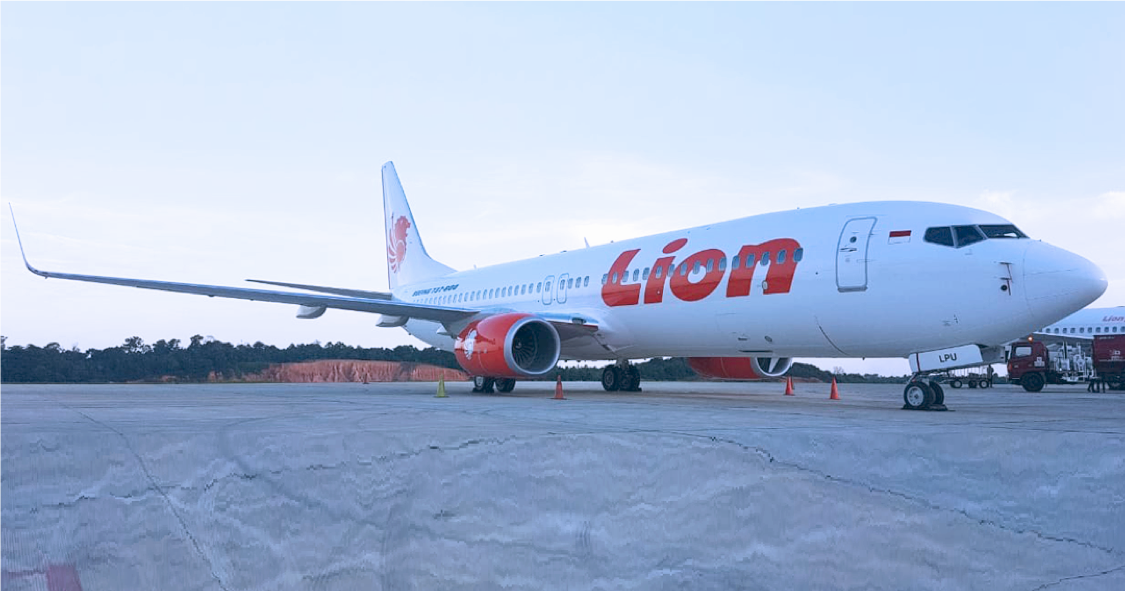On Oct. 29, an airplane from Indonesia's low-cost airline Lion Air crashed shortly after departing Jakarta.
Flight JT-610 plunged into the Java Sea en route to Pangkal Pinang.
189 people were on board, and there have been no reported survivors.
After the tragedy, The New York Times (NYT) published a piece that explored the history, customs and practices of Indonesia's largest airline on Nov. 22.
Overworked employees
NYT interviewed a Lion Air pilot, Captain Hasan Basri, who revealed how pilots were treated:
- Pilots are hired on two-year contracts, instead of long-term contracts, which possibly contravenes Indonesia's labour laws.
- If they wish to leave the company, they need to pay "large fines".
- 22-hour shifts were not uncommon.
- When learning to fly the Max 8, Lion Air's competitor, Garuda Airlines, got their pilots to travel to Singapore and train with a simulator. Lion Air pilots took a three-hour online learning course instead.
NYT quoted a former Lion Air safety manager, Frank Caron, who worked with the airline from 2009 and 2011.
He said that it had an average of one major engineering issue every three days, although most of the fleet of airplanes were new.
He added that during his first month, insurance companies working with Lion Air were shown logbooks that "drastically understated" the number of hours worked by the pilots.
Compensation delayed after accident
NYT also spoke to flight attendant Laura Lazarus, who joined the airline at the age of 19.
She said that she trained for just one month, although she was supposed to go for three months' training.
She would also fly up to six routes a day.
Lazarus shared how she was involved in two accidents while with Lion Air. In the second crash, where 25 people died, she suffered several fractures and had a chunk of her calf ripped out.
However, she had trouble getting compensation from Lion Air, and said she has "stopped fighting" since, preferring to leave the airline's treatment in the past.
Technical issues not addressed
Hasan recounted an incident where he reported that the weather radar in his plane was faulty.
But instead of repairing it, the radar was simply moved to another plane. Hasan felt that this added on to the stress for the overworked pilots. He said:
"For the aviation industry, safety should be No. 1. But the way the pilots and maintenance crews are treated, the overwork and the fatigue and the worries about the poor management of the airline, it creates an unsafe environment."
NYT also said that for two days before its final flight, the Lion Air plane that crashed into the Java Sea registered inaccurate data readings.
Despite this, the plane proceeded with its flight.
Steady rise of airline's founder
Lion Air has managed to achieve high growth despite its numerous problems.
It was founded in 1999 by Rusdi Kirana, who previously worked as a typewriter salesman, pastry chef, and ran a travel agency.
Today it is Southeast Asia's largest airline, according to the Center for Asia Pacific Aviation. It employs 30,000 people and has even built its own suburbs outside Jakarta, called Lion City.
The airline made a splash when it signed the largest order for Boeing planes in the manufacturer's history, a US$22 billion deal in 2011. Said President Barack Obama at the time:
"This is an example of a win-win situation where the people of the region are going to be able to benefit from an outstanding airline."
Success in politics, not just business
In 2014, Kirana's public profile got another boost when he became the Deputy Chairman of the National Awakening Party, the largest Islamic political party in Indonesia.
It was quite the achievement for the ethnic Chinese, Christian businessman.
In 2017, Kirana successfully lobbied to become Indonesia's Ambassador to Malaysia, a country where Lion Air is stepping up its efforts to compete with their homegrown AirAsia.
He has also served as President Joko Widodo's economic advisor.
Kirana declined to be interviewed by NYT.
On the other hand, Edward Sirait, Lion Air Group’s president director, denied that the airline cut corners or falsified logbook records.
He said that pilots who did so would lose their license, and added:
"When we expand, we think about all the markets we have to get. But we always develop in accordance with our fleet, human resources, crew and also the maintenance facilities."
However on Nov. 7, another Lion Air plane collided into a pole at the Fatmawati airport in Bengkulu city.
Related stories:
Top image from Lion Air Group.
If you like what you read, follow us on Facebook, Instagram, Twitter and Telegram to get the latest updates.
